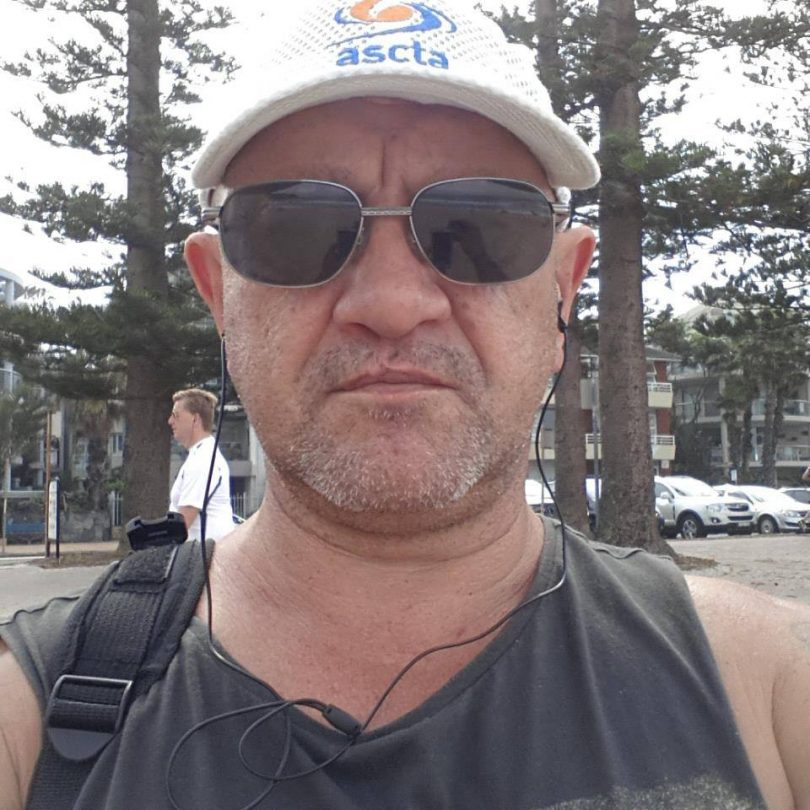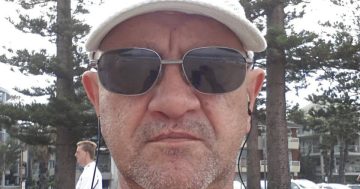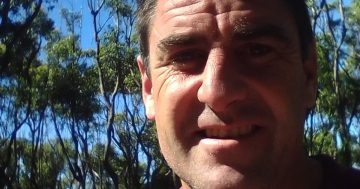
Alan William Delaney was found guilty of murder in a jury trial earlier this year. Photo: Facebook.
The sister of a man assaulted and murdered by a killer with “so much anger in his soul” under a Queanbeyan bridge on Boxing Day 2019 has described his loss as “the missing piece in our family puzzle”.
Alan William Delaney, 53, has been sentenced to 16 years’ jail until 2035 for murdering 46-year-old Aaron Baxter after a jury found him guilty of the crime in a trial that began earlier this year.
In a statement read to the NSW Supreme Court on Tuesday (26 April) by Crown Prosecutor Nerissa Keay, Mr Baxter’s older sister Dana Souter said that having to relive the fact her brother was not here every day was heart-breaking.
“I catch myself thinking about our past and all the amazing adventures we used to have,” she wrote.
“Aaron was my little brother, but he was my idol.
“It breaks my heart that I don’t have that shoulder to lean on anymore.
“I think about how alone he must have felt and it makes me feel empty.”
Ms Souter wrote how her brother loved nothing more than his now 13-year-old son, whom she cared for.
“I see so much of Aaron in [his son] … but [he] is hurting that his father has gone,” she said.
She also said her brother’s death had “ruined” their mother, who felt she “failed him” and would write him letters asking for his forgiveness.
She said she could never forgive Delaney for what he had done.
Judge Desmond Fagan said Mr Baxter and Delaney were both heavy drinkers and knew each other, but their relationship had turned sour, partly because Delaney thought Mr Baxter had stolen his money.
Mr Baxter spent a large part of Christmas Day 2019 drinking eight litres of cask wine near the Queanbeyan River while Delaney spent the day with his partner until they fought and she asked him to leave.
Delaney blamed Mr Baxter for their breakup, drank overnight and on Boxing Day tracked him down under the bridge, where he approached him shouting, “I’m going to kill you”.
Delaney punched him repeatedly in the head, accusing him of telling his partner they had planned to visit a brothel, which his victim denied, but Delaney continued to assault him, including at one point kneeing him in the abdomen.
His victim never tried to defend himself.
After the attack, Delaney made comments like “get down to the river so I can drown you” before leaving, still shouting.
Mr Baxter tried to walk back to where he was staying at the Kent Hotel, but collapsed onto the ground. He was taken to hospital where he died.
An autopsy found the cause of death was a ruptured spleen which led to massive internal bleeding, shock and heart failure, although both his liver and spleen were already severely diseased, apparently from long-term alcohol consumption.
Judge Fagan said Mr Baxter’s spleen was vulnerable to rupture due to its diseased condition, but he was satisfied a blow to his liver during Delaney’s attack had caused the spleen to rupture.
However, he said he was not satisfied Delaney had intended to kill Mr Baxter, partly as the blows he delivered onto his victim were not consistent with such intent and he walked away when Mr Baxter was still alive shouting he would kill him as he expected he would live on.
He also said there was no evidence he knew about his victim’s liver disease.
Judge Fagan accepted the jury found there had been an intent to cause grievous bodily harm, but he found it to be at the lowest level.
Ms Keay said Delaney had been drinking through “a long bender” before attacking his victim as well as taking other drugs and not sleeping.
He appeared to have a long history of offending with no changes in his behaviour, she said, so his prospects of rehabilitation would be guarded.
Barrister Duncan Berents said when his client was arrested he asked about Mr Baxter’s welfare, even showing concern for him at that stage, and he was sorry he had gotten into the fight.
The trial had heard that when police told Delaney that his victim had died, he burst into tears.
“Please tell me that’s not right. Please tell me it’s a bad dream,” he said.
Before the trial started he offered to plead guilty to manslaughter, but this was not accepted.
Judge Fagan set a non-parole period of 12 years, which with time served means Delaney is eligible to be released in December 2031.





















Russell Nankervis no common sense at all View